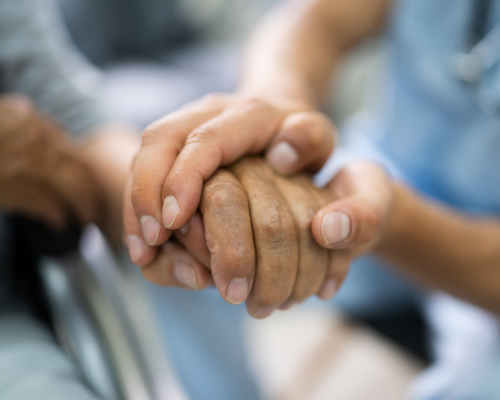Every older adult deserves to live with dignity, safety, and respect. Yet for too many, these basic rights are threatened by a silent and devastating issue: elder abuse.
Elder abuse is a largely hidden crisis that affects seniors from all walks of life. It can leave behind deep physical, emotional, and psychological scars, and in some tragic cases, it can even result in death. Despite its seriousness, elder abuse is often underreported and overlooked—making it all the more dangerous.
The Centers for Disease Control and Prevention (CDC) defines elder abuse as “an intentional act or failure to act that causes or creates a risk of harm to an older adult,” typically someone age 60 or older. Abuse can take many forms, including physical, emotional, sexual, or financial harm, as well as neglect or abandonment.
One of the most widespread—and financially damaging—forms of elder abuse is financial exploitation. It's estimated to cost older Americans a staggering $28.3 billion each year. But the consequences go far beyond stolen money. When an older adult is financially exploited, family caregivers and public assistance programs often must step in to cover care costs, placing emotional and economic burdens on everyone involved.
Types of elder abuse include:
- Physical abuse – Inflicting pain or injury on an older adult.
- Sexual abuse – Any sexual activity involving an older adult who cannot understand, consent to, or resist the act.
- Emotional or psychological abuse – Verbal assaults, threats, harassment, or intimidation.
- Abuse by confinement – Isolating or restraining an older adult without medical justification.
- Passive neglect – Failing to provide basic needs such as food, shelter, clothing, or medical care.
- Willful deprivation– Intentionally denying essential care or assistance, placing the individual at risk.
- Financial exploitation – Misuse, mismanagement, or withholding of an older adult’s financial resources.
Abusers can be anyone: women or men, young or old. In nearly half of the cases reported to the National Center on Elder Abuse’s resource line, the perpetrator was a family member. About 13% involved professional caregivers, and in just under 7% of reports, the victim didn’t know their abuser. Not all abuse is intentional — neglect, whether by a caregiver or the older adult themselves, can also cause serious harm.
Raising awareness is a crucial step in preventing elder abuse, and that’s why local organizations are taking action.
On Friday, June 20, UHD’s Office of Continuing Education, the College of Public Service’s S.T.A.R. Lab (Service, Teaching, Aging, and Research), and the Adult Protective Services Board for Region 6 are joining forces to present a one-day conference focused on elder abuse awareness and prevention at the university. Appropriate healthcare professional CEUs are provided. Commissioner Adrian Garcia will be the keynote speaker with closing remarks by UHD President Loren J. Blanchard, Ph.D.
This important event will bring together professionals from multiple disciplines—first responders, emergency healthcare providers, long-term care staff, senior living administrators, social workers, legal and financial experts, and more. The goal: to inspire collaboration, share knowledge, and empower the community to protect vulnerable older adults.
Through education, partnership, and proactive strategies, we can work together to shine a light on elder abuse, support survivors, and help ensure that all older adults are treated with the respect and care they deserve.
If you suspect elder abuse, don’t stay silent. Speak up and seek help. Protecting our seniors is not just a moral responsibility—it’s a community one. Register today by clicking here.

